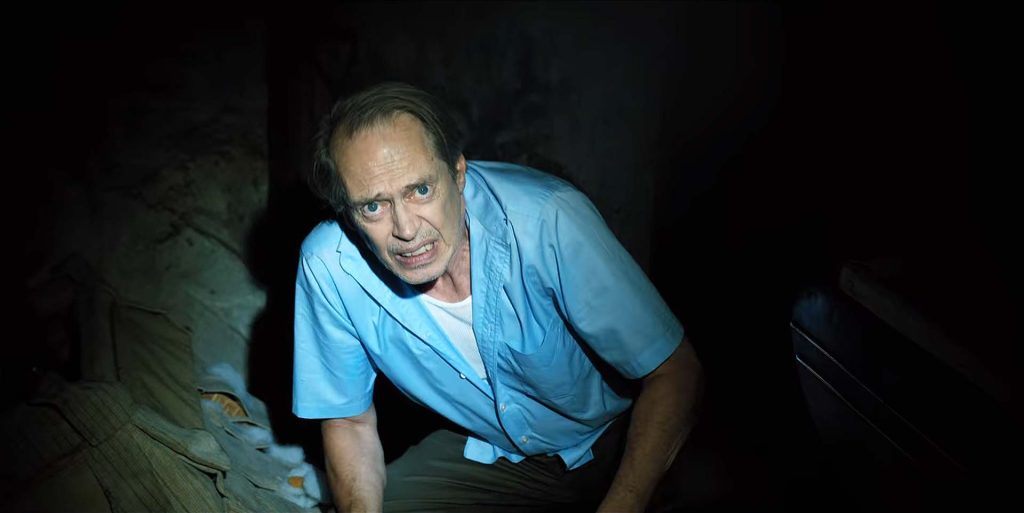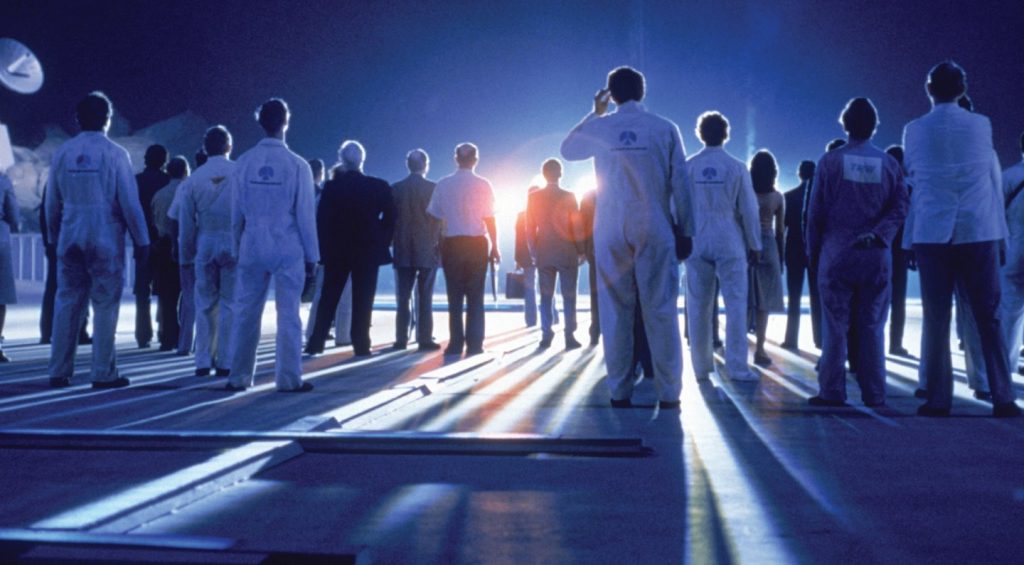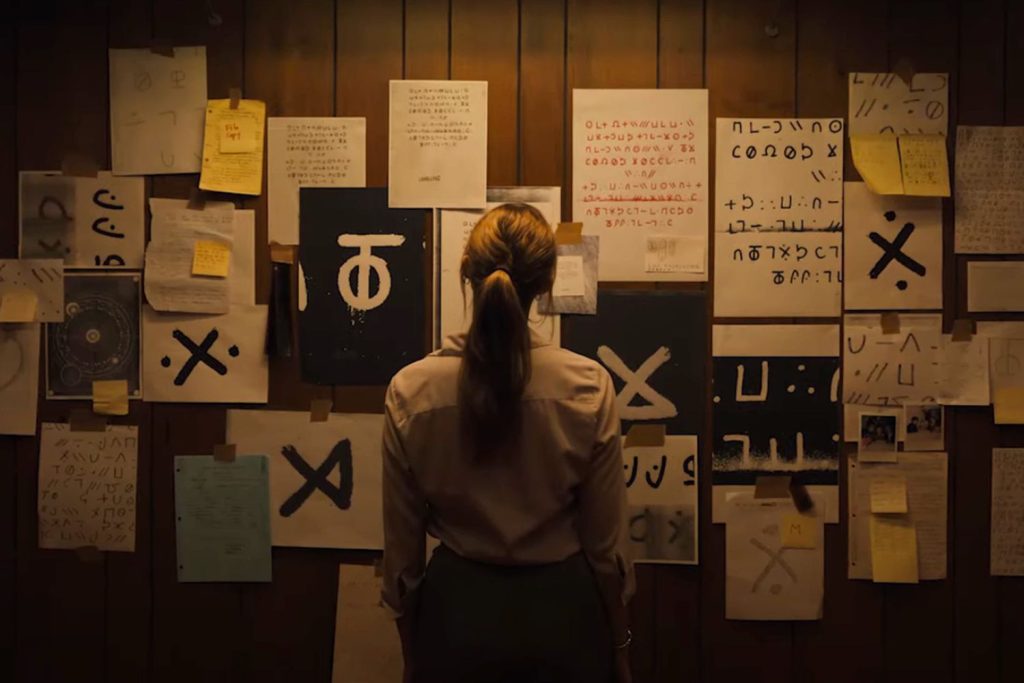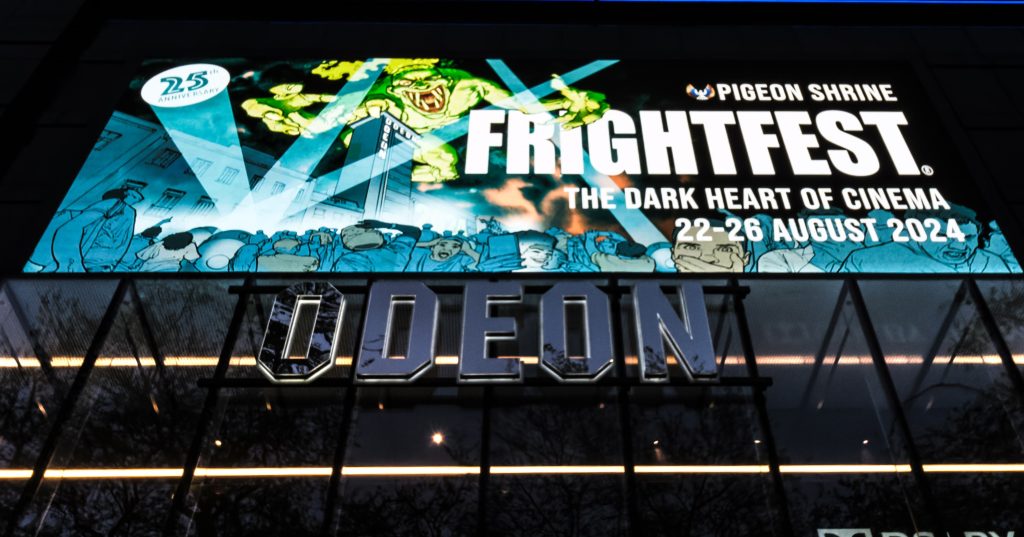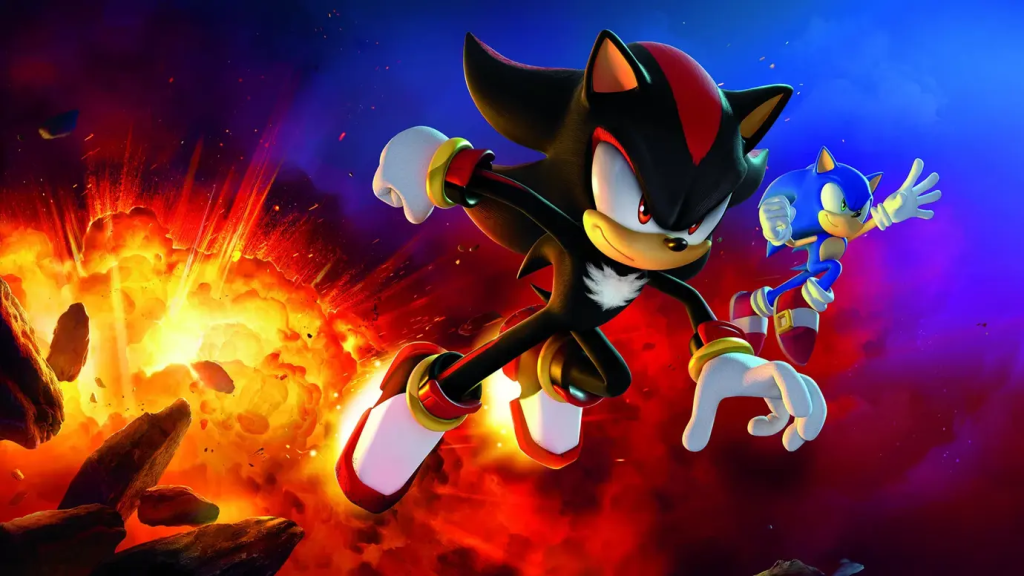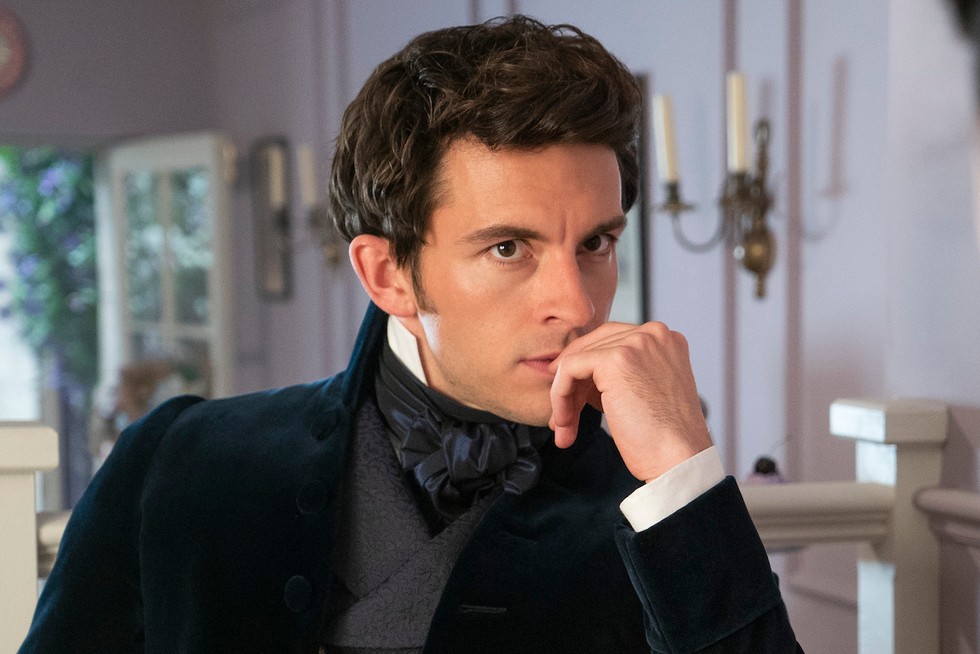Kyle Dixon and Michael Stein’s music for the massively-popular Netflix series Stranger Things is a phenomenon in and of itself. The pair’s electronic sounds hearken back to the time in which the sci-fi horror program takes place, setting a mood as effective as the imagery onscreen. As the series name-checks ’80s genre favourites like Dungeons & Dragons, Ghostbusters and the like, so does Dixon and Stein’s score reference John Carpenter and Vangelis. It’s a perfect meeting of styles, and not for nothing can Stranger Things soundtrack albums be found in your local big-box stores alongside the latest releases from Lady Gaga and Bruno Mars.
We caught up with Dixon and Stein – from Austin and Los Angeles, respectively – for a wide-ranging discussion about the duo’s work on Stranger Things, putting out soundtrack LPs, and when we might get to hear a new record from their band, Survive.
STARBURST: How has the shutdown of almost everything affected the two of you, in terms of making music – both in general, and specifically in regards to Stranger Things‘ fourth season?
Kyle Dixon: We can’t travel. I mean, we could, but we aren’t, so we don’t get to work on music in the same room, at the moment. There’s no reason why we can’t make music – we have home studios. We don’t require other people’s facilities or other people to make music.
As far as scoring goes, everything’s on halt, so finding a project right now is unlikely. We lucked out and did find a project, but that’s only because it had already been shot and was completely done, but anything that would be in the works – like Season Four – that’s all on hold.
Michael Stein: We really like to collaborate on scoring, but we also have a band that’s four pieces, and the idea of getting all of us in a room to finish our album kind of was like, “No. Let’s not travel and get all bunkered-up together.”
When you went into the first season, we heard you have a lot of material ready to go. Was that the case?
MS: We actually didn’t have a lot of pre-written material going into this, necessarily, that we used to score Season One. We had a lot of stuff sitting around that we shared with them, and then we built on those ideas and developed some things that did work during the season. Season Two and Three, we got really busy, so we didn’t have any time to really do any preliminary work. This year, we have this Corona pandemic thing. That’s given us some time to come up with some ideas – just read the scripts, do a little bit of work – similar to what we did for Season One.
KD: Because we started so early on Season One, we ended up doing a lot of extra work that was just unnecessary. We had to re-do a bunch of stuff, because the edits were changing so much, and we didn’t want to that again, because we basically made twice as much work for ourselves, for no reason.
Knowing that, going into the next season – coupled with the fact that we got busy – we waited until the episodes were pretty much done.
MS: I don’t know if Season Three did this, but definitely in Two, they started sending us the more large scenes early. If there’s a really big, climactic scene or it just has a really important role in the narrative, they might send us something to score before an episode’s finished, so we can do a little preliminary work on that. It’s really helpful, because we like to see picture before we really dive in.
The music from Stranger Things‘ first season – along with groups like College and the soundtrack for Drive – seems to have really kickstarted a revival of synth-based instrumental music. The score the two of you made really found a lot of love. Did the popular response put any pressure on you to make sure that you didn’t repeat yourselves?
KD: I personally haven’t felt any pressure to meet people’s expectations or anything like that. Obviously, there is a pressure to finish and meet deadlines. Sometimes, they’re pretty short, so you have to work a lot, but really, that’s the only kind of pressure that I’ve felt.
MS: The pressure’s in the deadlines.
KD: We’d been doing this for ten years before we did Stranger Things – it’s just that we now had a platform that a ton of people saw, which is still pretty weird to think about. I kind of forget how huge the show is, honestly, and then something reminds me, and I’m like, “Oh, my god. It’s one of the biggest shows around.”
MS: It’s funny. A friend of mine sent me a screenshot the other day of a plug-in that somebody’d just released, that shows you analytics on your mastering: it shows you decibels and dynamic range. The track that’s in the ad says “Stranger Things, Kyle Dixon and Michael Stein.” It’s our theme song, and I’m like, “That’s a weird example piece of music to put in a mastering software,” but I guess it just shows the interest related to synthesis or electronics at home. I always forget that it is this really big thing.
KD: I listened to a podcast the other day, and the person who produces it also does music for it, and it’s very much instrumental synth, kinda College zone stuff. I tuned in, and he was like, “I’m gonna do a version of Stranger Things,” and I was like, “This is insane!” [laughs] This podcast has nothing to do with anything – it was just weird, but flattering, I guess.
Your band, Survive, ended up on Relapse Records. That’s not out of the ordinary, given that they also had Zombi, but it’s kind of weird to think of this epic metal label having this instrumental, synthesiser-based bands.
[Both laugh]
KD: That label’s been around for a long time, and I feel like they’re expanding. They’re growing up, kind of, and they’re not just going straight for metal all the time. Our band – especially when we first started – it was hard to find a bill that made sense when we would play shows. We’re not dance music. We don’t fit in with the DJs. We’re not twee indie or anything like that. We’re definitely not Americana on which Austin thrives. We don’t really fit in anywhere, but people who were into metal or hardcore would come up to us and be like, “I don’t usually like electronic music, but that was pretty cool.”
MS: We got put on a handful of bills with metal bands – like doom metal or stoner metal, and something that’s a little more mellow and heady – and we never felt like it was that off. The crowd would respond. If you think about it, the way people move to our music – because you can’t really dance – if you looked at a video of our audience moving, with no audio, they probably move to Survive the same way they move to a metal band. Thrashing a little bit harder, but slower than dubstep. It’s a similar motion.
Given that you said that it’s the deadlines that give you pressure, how does that relate to your ability to experiment, given that you’re honouring what’s onscreen and in the scripts, rather than other outside influences?
MS: I would cite the picture and the mood of what’s onscreen to be the main influencer of the music we make, besides all the built-in experience we have with the musical taste that we have.
KD: The deadlines definitely do not promote experimentation. They do not. You hope that you figure out how to solve every situation by the time the deadlines hit: Like, “This is how we’re doing action this time.”
MS: Sometimes, I’ll take a stab at a scene and totally miss it. Kyle’ll take a stab and totally miss it. Come back to me, still miss it. It’s like, ugh.
KD: Every season, there’s at least two or three scenes. They just take forever. The very first scene in the first season [Stranger Things] ever has in it – where the kids are biking – we didn’t get that until the very end. We tried a whole bunch of things throughout the whole scoring process. There’s just always a few scenes the Duffers have an idea about and it just takes a lot of tries to figure out what’s going to work there. I don’t think it has to do with the type of music, but it has to do with what the directors are kind of looking for.
MS: We’re not masters of writing comedy cues.
Every season seems to have a song of note within it, like The Clash’s Should I Stay or Should I Go? from the first, or The Neverending Story from the third. Do you let the pop music of the era in which Stranger Things is set influence you? Are you aware of it?
KD: Sometimes, we’re aware of it. It changes, though. I’m pretty sure it was supposed to be Break on Through in the first season, and then they couldn’t get that one. They were trying to go for the Upside-Down and Break on Through, conceptually – they wanted to use that.
MS: There have been examples. Like Kyle was saying, there might be a piece of music that gets swapped out. So, if you were composing, being like, “I’m gonna match the key signature with this cue,” so that if it goes directly into that piece of music, they would be overlapping, but then they throw something else in at the last minute, it’s either up to Dave [Klotz], the music editor to key-match, if it’s important.
This is a fact that people probably don’t think about, but it can sound jarring when two things collide, basically. In Season One, when they flashback to Barb getting taken, it’s a Foreigner song that they cut back-and-forth between and our score. We had to have a somewhat dissonant version of – but in the same key as – that piece of music. That was kind of weird. Sometimes, they can be very intertwined.
KD: Only if it’s overlapping does it ever inform what we’re going to write. We know Nora [Felder, music supervisor] and we talk to her during all the planning sessions. We don’t offer negative opinions, but if we do like a song, we make sure to let her know, “You should keep that.”
There have been times where they’ve done needle drops of stuff I’m sure people thought was us. There’s some Tangerine Dream stuff. There’s a New Order song [Elegia] that people thought that we wrote. Sometimes, they have temp stuff that just works perfectly, and we’re like, “If you want us to write something, we will, but if you can use that – use that. It’s already working perfectly.”
The score from the first season was released in two volumes, and it’s a massive amount of music, while Seasons Two and Three were tighter, single-disc releases. How do you distill an entire season’s worth of music down to one collection, but not get ear numbness from having to listen to things over and over again?
KD: Oh, you can’t avoid that. I’m very tired of hearing our music by the time we’re doing that. [laughs] It is just ear-numbing. The first one, we were just like, “Oh, that’s cool, put it on there.”
MS: We were more inclined to add in one minute, or minute-and-a-half, two minute things, but we still did the sequencing ourselves, and that was hard, because we would combine stuff to create longer cues. We were talking about key signatures earlier: we would combine pieces that would flow together, so that we felt that this random assortment of 70 or 80 pieces of music still had a flow that we felt was a decent listen. That was the trickiest part of that. Now, we focus more on building out our established, structured, stuff.
KD: Now, if it’s less than minute, we’re probably not going to put it on there anymore. There’s music that’s ‘score’, right – weird shit happens musically that’s not fun to listen to, but it’s important toward the picture. It’s a left turn out of nowhere or a weird chord that’s not in the same key or the rhythm changes that doesn’t make sense as a song. We’ve tried not to include those on the collections.
MS: Or, if it’s an atmospheric thing that doesn’t really do enough. While it sounds cool and has good sound design or a cool mood, you have to decide whether it’s considered filler or not. There’s a lot of colour-coding. You colour-code the regions and you shuffle them around, and make ’em all fit.
KD: We definitely look at it in terms of record sides. The first side is always going to be the cutesy, poppy stuff. That’s a label request, not from us. We’d definitely be like, “Let’s do some weird shit right out of the gate.” That’s more interesting to us, but that’s been the pattern – start off with the cutesy, poppy stuff, and then you can get into the weirder or darker stuff.
Stranger Things Season Four is expected to screen before the end of the year. You can buy the soundtrack albums on Amazon.



